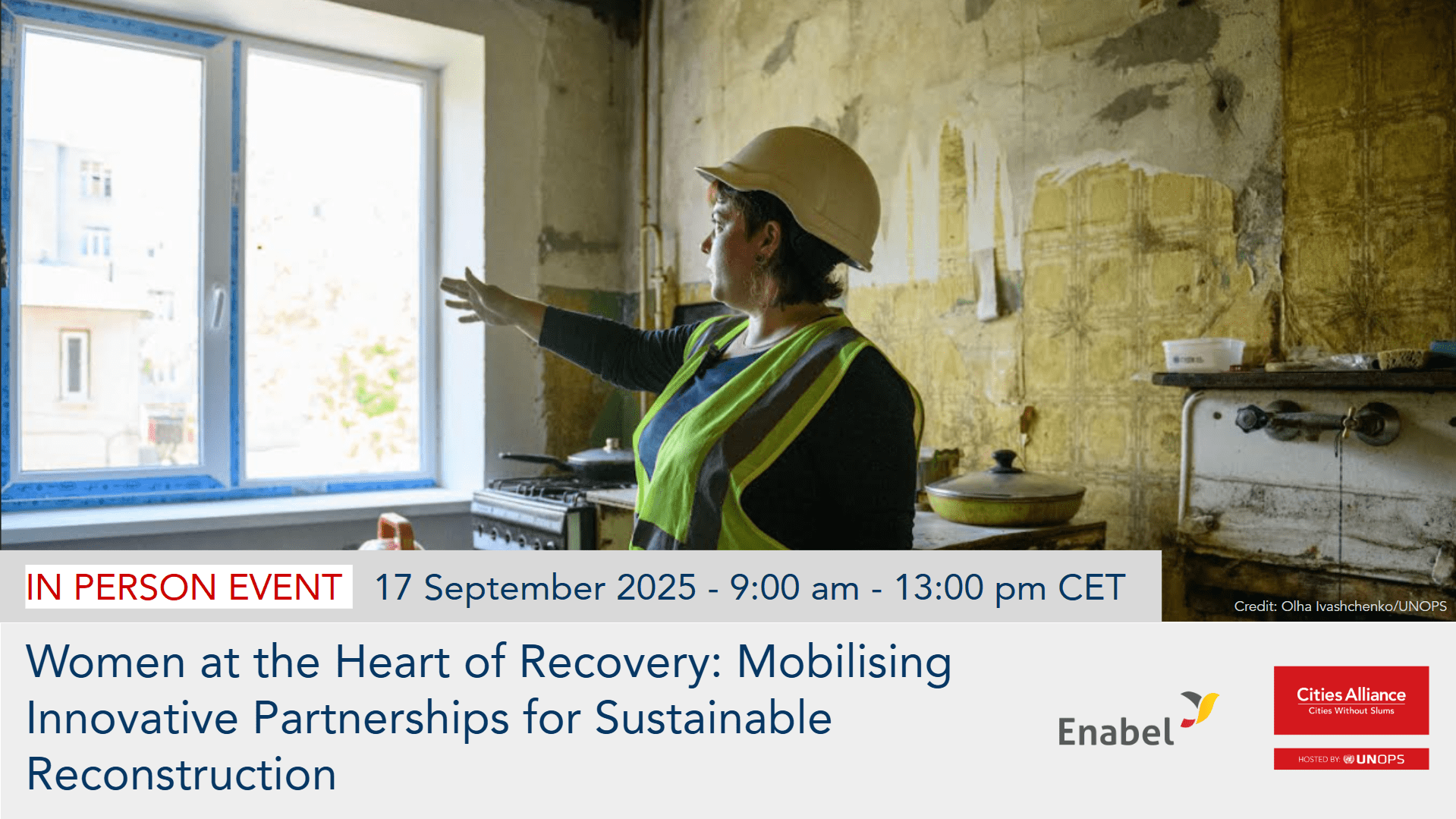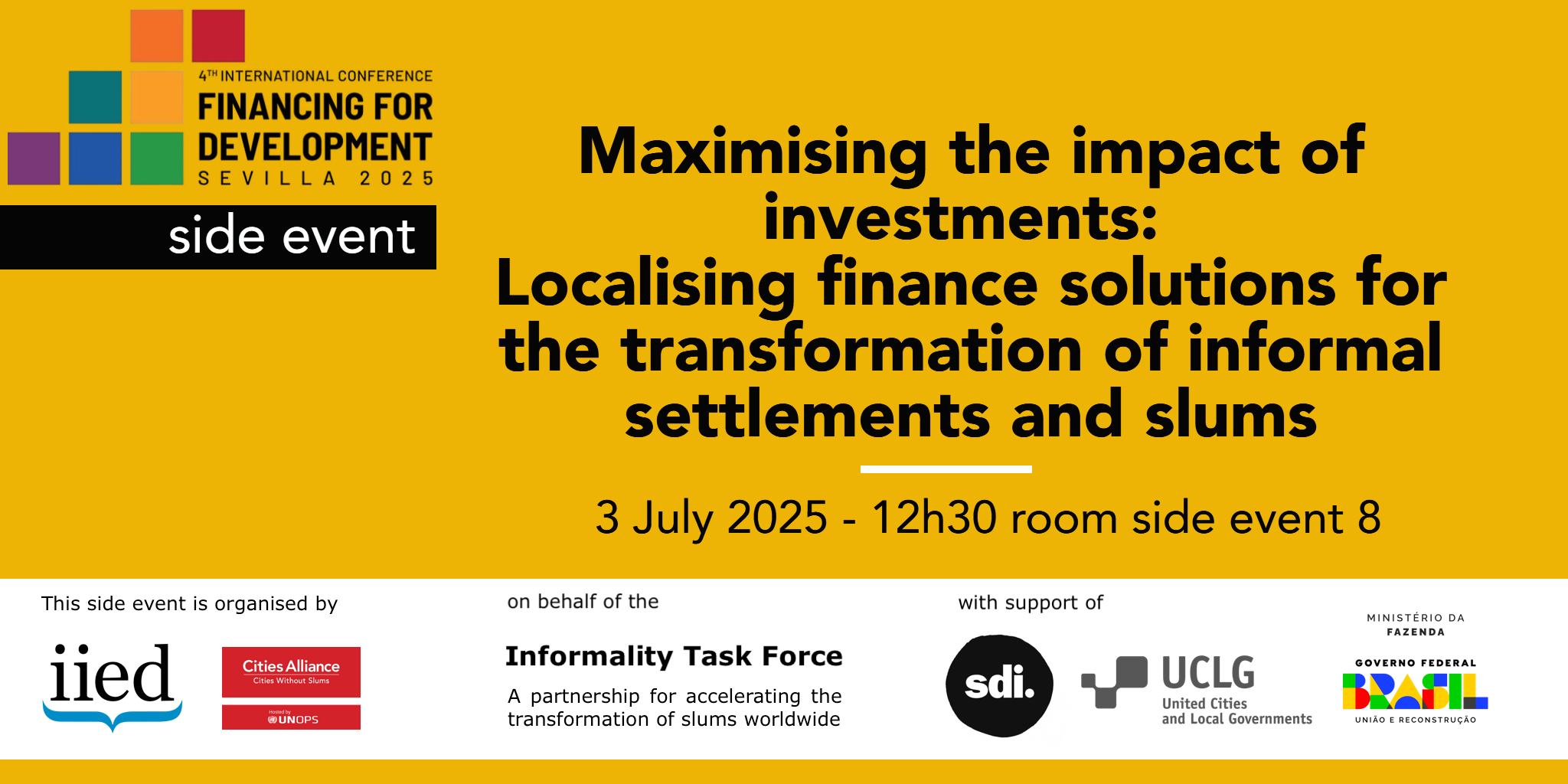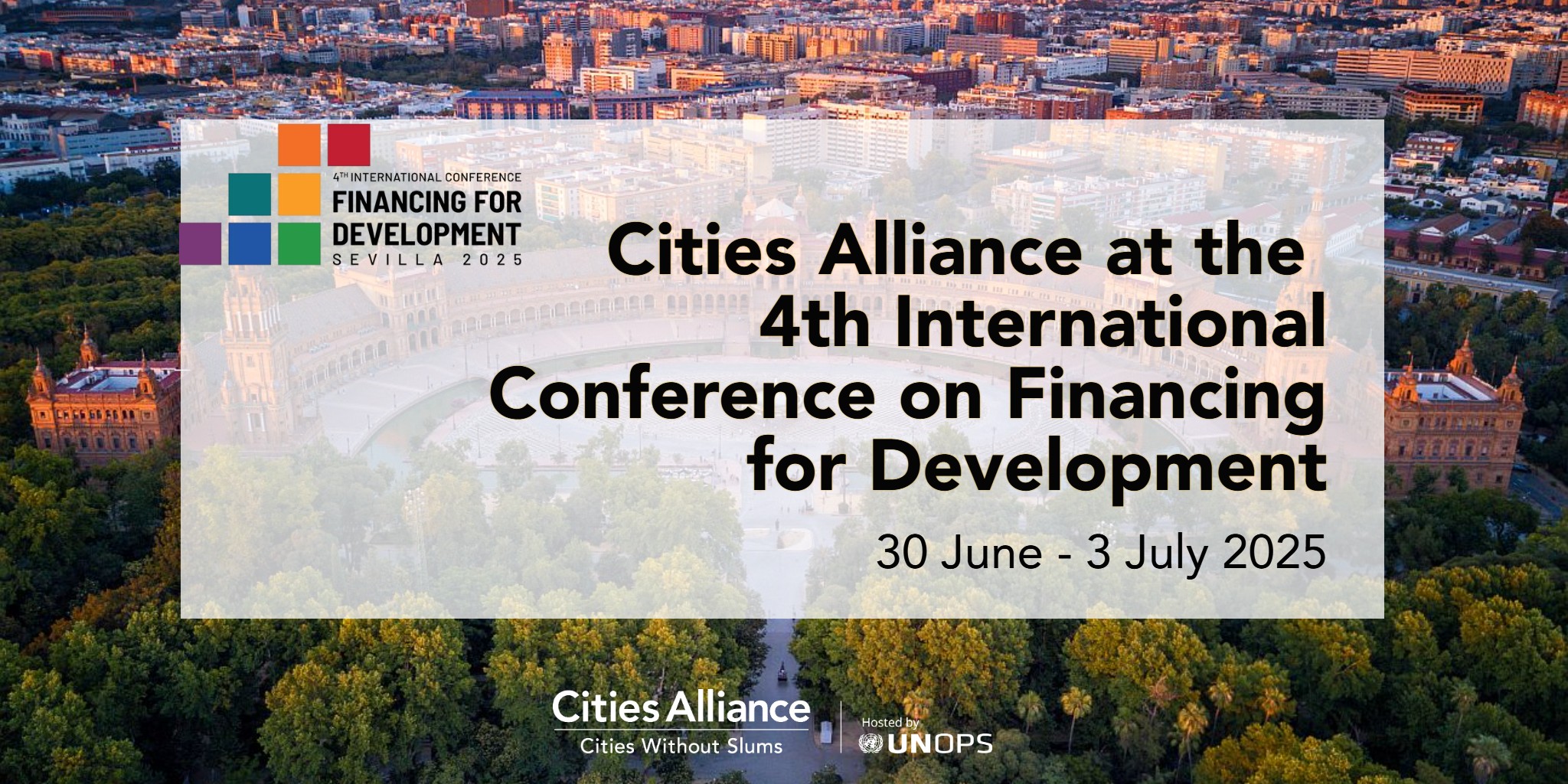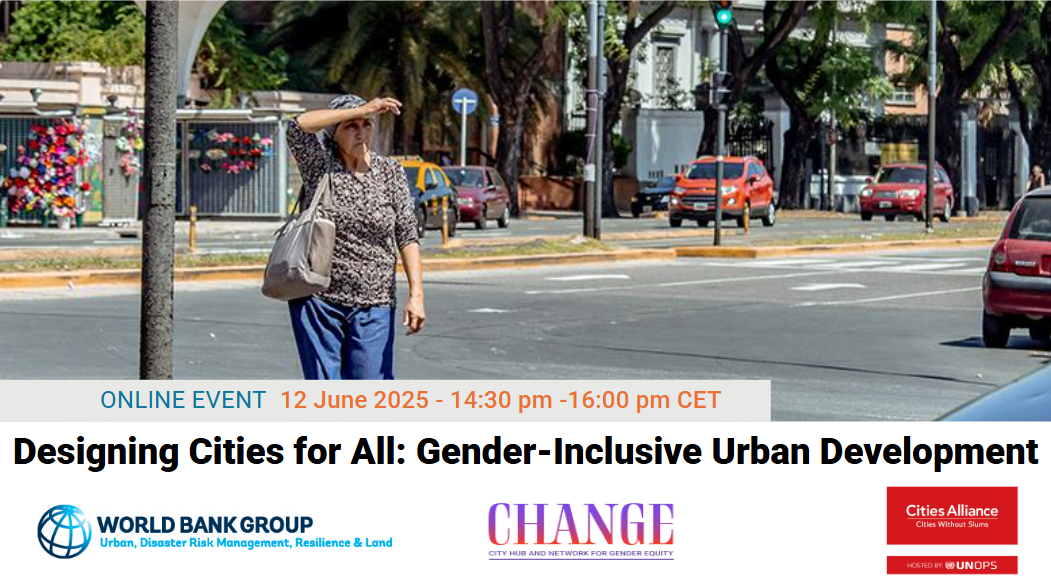- Who We Are
- How We Work
- Regional / Country Initiatives
- Legacy
- Core Themes
- Working Groups
- Portfolio & Results
- Newsroom
- Resources
Addressing Growing Income Inequalities in Cities Through Inclusive Local Financing

Technical Roundtable
November 25, 2020, 9:30 -11am EST
There is growing inequality in cities as more and more people are rapidly moving to urban areas creating enormous pressure on existing resources and resulting in economic disparities. The urban population of the world has grown rapidly from 751 million in 1950 to 4.2 billion in 2018 (UN Habitat). UN estimates[1] that by 2050, 68% of the world’s population will live in the urban areas. Cities in developing countries face increasing pressure from rural-urban migration, climate shocks, unplanned growth and inadequate basic services and infrastructure. Moreover, inequality is not only a problem in the developing world but affects every city irrespective of the level of wealth and prosperity and it cuts across rich and poor world economies.[2]
Cities accommodate rapidly growing migrants often without any settlement plans with limited municipal resources. As a result, city dwellers including women and youth, persons with disabilities, slum dwellers, minorities and marginalized groups experience inequality and vulnerability in various forms. This includes unsafe working conditions, challenges in accessing decent work opportunities, dealing with the burden of earning income while balancing unpaid care work, accessing financial assets and housing security, and access to services and infrastructure such as safe transport, mobility, and water and sanitation. These problems are compounded by the fact that such vulnerable groups are also under-represented in governance structures and decision making.
Growing urbanization can be a transformative opportunity to achieve greater equality if cities are planned and financed better. Participation of vulnerable groups in decision making and governance systems can lead to better prioritization of urban investment needs and management of budget allocations. Cities can offer an improved quality of life for inhabitants through better services, housing and infrastructure if they incorporate the special needs of marginalized and excluded groups. For example, cities can be made safer and free of violence through better street lighting, safer transportation, improved security, and increased focus on areas at risk through vocational training and job creation.
As the Decade of Action for achievement of the SDGs commences, a focus on localization of the SDGs and financing of local development needs is crucial. The 4th report of the Local and Regional Governments Forum[3], at the High Level Political Forum 2020 revealed that at the local level, most cities will not be able to raise the finances that they require to meet their existing and projected demands. This means that services that are critical for millions of vulnerable populations and excluded groups specially in Africa and Asia cannot be guaranteed. In many cities, planning and financing specially for safe transport, inclusive services and gender responsive local economic solutions remains inadequate.
Building inclusive cities will require better planning and stepped up investments in essential services and infrastructure that incorporate the special needs of vulnerable groups. The New Urban Agenda reiterates that an ‘adequate stream of finance to empower local and regional governments and to boost innovation and investment in sustainable public services’ is critical. The cities of the future will need innovative ways of generating financing to ensure sustainability and delivery of essential services for all citizens. With growing inequalities, city governments’ role in prioritizing financing to address deep rooted inequalities, targeting interventions towards most under-developed neighbourhoods, and collaborating with local private sector to generate additional financing will be critical.
Event Objectives
Through this Technical Roundtable, the UN Capital Development Fund aims to gather experts, practitioners including city government representatives and development partners to discuss how to address growing inequality in cities and how to make cities of the future more inclusive and responsive to the needs of all citizens including women and youth. The event builds on the newly launched UNCDF initiative ‘IncluCity’ and will highlight key underlying bottlenecks leading to persistent inequalities in cities and show how city governments can respond to those challenges.
The event will particularly focus on the importance of investing in local solutions that address the needs of the most vulnerable populations and increase their access to economic opportunities, better services and infrastructure. It will showcase best practices and lessons on how an enabling policy and institutional environment for an inclusive agenda for cities can be developed and implemented. The event will provide a forum for discussion and contribute to key recommendations and ways forward for alliance building to produce new knowledge and tools such as measurement systems to track progress on local commitments on equality and economic inclusion.
Speakers
Moderator: David Jackson, Director, Local Development Finance, UNCDF
Two panels will be organized to focus on two sub-themes. Each speaker will have 5-7 minutes, followed by 15-20 minutes of Q&A.
1) 9:35 – 10:15am: Panel 1: Mayors and Local governments share experience in championing Inclusive Urban Development
- Honorable Mayor Uma Chowdhury Jolly, Mayor of Natore, Bangladesh
- Honorable Mayor Zandya Mutwalib, Mayor of Mbale City, Uganda
- Ms. Marie-Josée Meilleur, Interim Head of Division - Intercultural Relations and Fight Against Discrimination at the Diversity and Social Inclusion Department, Montreal, Canada
2) 10:15 - 11:00am: Panel 2: Development agencies and practitioners discuss priorities for promoting inclusive urban development
- Ms. Giulia Macci, Urban Specialist, Cities Alliance
- Ms. Samina Anwar, Programme Manager, Local Development Finance, UNCDF
- Ms. Susana Torre, Architect, Critic and Educator
- Ms. Angela Mwai, OIC – Human Rights and Social Inclusion Unit, Urban Practices Branch, UN-Habitat
[1] UN (2018), ‘World Urbanization Prospects 2018’.
[2] Fran Tonkis, ‘City Government and Urban Inequalities’ (2020)
[3] UCLG (2020), Fourth Report of the Local and Regional Governments, ‘Towards Localization of the SDGs: How to Accelerate Transformative Action in the Aftermath of the COVID-19 outbreak’.




